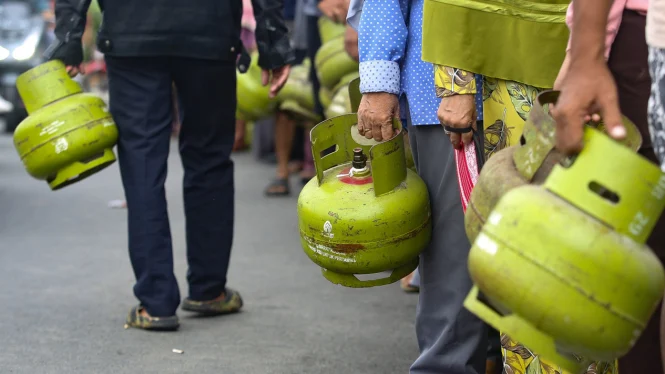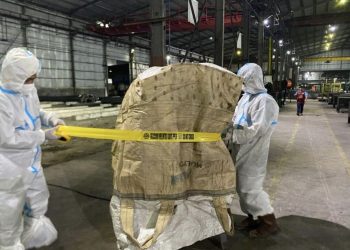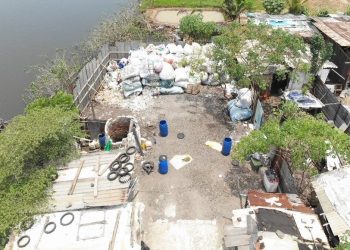Pamulang, Indonesia Sentinel — A tragic incident occurred in Pamulang Barat, South Tangerang, where a housewife reportedly died due to exhaustion after spending hours in line to purchase a 3kg LPG cylinder. The woman, whose identity remains undisclosed, had been searching for the subsidized gas from early morning on February 3, 2025, facing long queues amid an ongoing LPG shortage.
The news surfaced through a viral post on Instagram by the account @viralciledug, detailing that the woman had circled multiple distribution points without success before deciding to wait in line at an official gas agent for hours.
“She went around looking for gas since morning but couldn’t find any. She then queued for hours at an agent,” read the post.
Witnesses reported that the woman appeared exhausted upon returning home, where she sat down to rest but never regained consciousness. Family members rushed her to the nearest hospital, where medical personnel confirmed her passing.
Indonesia’s National Police Food Task Force (Satgas Pangan Polri) dispatched teams to investigate the availability and distribution of 3 kg LPG cylinders. Brigadier General Helfi Assegaf, the task force chief, stated that officers were on the ground checking the supply chain and monitoring distribution agents.
“Our team is conducting field checks to ensure the availability and proper distribution of LPG by businesses and agents,” said Helfi on February 4, 2025.
Law enforcement agencies have already uncovered seven cases related to LPG distribution violations between 2021 and 2024. The police pledged to continue their efforts to protect consumers and prevent further abuses within the supply chain.
Regulatory Changes and Distribution Challenges
The Indonesian Ministry of Energy and Mineral Resources (ESDM) recently implemented a policy requiring consumers to purchase 3 kg LPG cylinders directly from registered distribution agents. This measure aims to tighten control over the subsidized fuel’s distribution and ensure that it reaches eligible households.
“Retailers registered under Pertamina’s Merchant Applications (MAP) system can still make purchases from official distributors. This arrangement is part of our effort to better manage the distribution of 3 kg LPG,” explained Heppy Wulansari, Corporate Secretary of Pertamina Patra Niaga.
Currently, nearly 63 million National Identity Numbers (NIK) have been registered in the MAP system, covering 53.7 million household consumers, 8.6 million micro-enterprises, 50,000 targeted farmers and fishermen, and 375,000 retailers.
Despite assurances from the government, many consumers have reported difficulties in accessing the subsidized gas. Long queues and erratic supply patterns have led to frustration and, in extreme cases like the recent tragedy, dire consequences.
Read Also:
Indonesia’s Energy Ministry Mandates OSS Registration for 3-Kg LPG Retailers
No Changes in Supply, Says Government
Authorities insist that there has been no reduction in the supply of 3 kg LPG cylinders. The quota remains unchanged, with the recent distribution adjustments solely aimed at preventing misuse of the subsidy.
“The supply quota is the same. The distribution restructuring is to ensure that subsidies reach the right people,” added Heppy.
For those facing issues or needing information about LPG distribution, the government has urged the public to contact Pertamina’s Call Center at 135.
Public Outcry and Call for Accountability
The incident has sparked outrage on social media, with netizens demanding accountability from both the government and Pertamina for failing to manage the LPG distribution effectively. Critics argue that the policy changes, while well-intentioned, have created unintended hardships for vulnerable populations.
“No one should lose their life trying to buy basic necessities like cooking gas. This is a failure of public service,” one user commented.
Community leaders in South Tangerang have also called for immediate reforms, urging the government to deploy more distribution agents and ensure smoother supply chain management.
As investigations continue, the tragedy serves as a grim reminder of the real-life consequences that can arise from systemic inefficiencies in essential service delivery.
(Becky)


























